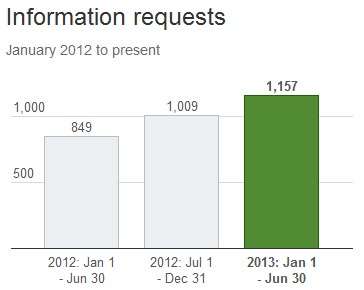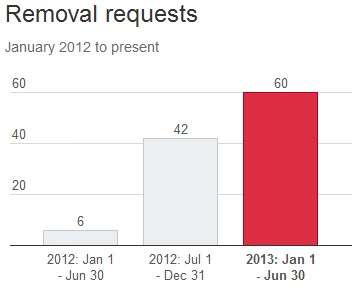Governments Get Snoopier and Bossier With Twitter

You know you've arrived as an online media operation when governments take an interest in who is speaking out, and make efforts to muzzle what's published. That's definitely the case with Twitter, the microblogging platform that started as an outlet for exhibitionist ADHD sufferers, only to become a powerful medium for sharing news and grassroots organizing. According to the company's latest transparency report, governments around the world are issuing ever-more demands for information about the service's users, and stepping up efforts to suppress tweeted content.
From January 1 through June 30 of this year, Twitter received 1,157 government requests for private information about users and accounts, up from 849 during the same period in 2012. Of those, authorities in the United States were responsible for 902 requests. Twitter complied in whole or part with 55 percent of all requests — 67 percent of those originating in the U.S.

Interestingly, roughly 20 percent of information requests issued by American authorities were "under seal," meaning that Twitter was forbidden to fulfill its usual policy of informing users about requests for their private information.
Censorship — formally framed as "removal requests" — are also on the rise, though the numbers are much smaller. Twitter reports 60 such requests from January 1 through June 30 of this year, up from six during the same period in 2012. Such requests target "illegal content," the definition of which variies from country to country. Twitter reports complying in part or in whole with 38 percent of all such demands. Targeted content ranged from "a defamatory account in Brazil" to "hate speech" in France to Russian accounts "found to have promoted drug use or suicide."
There's no mystery as to why Twitter has become increasingly prominent on government radar screens. Turkish protesters used the service to coordinate demonstrations that enraged officials in that country, and to bypass mainstream media outlets that ignored their concerns. Twitter has also been an important outlet for Egyptians during that country's political turmoil; social networks overall are considered to have played a major role in bringing down the Mubarak regime.
That kind of grassroots power tends to make government officials jittery.
